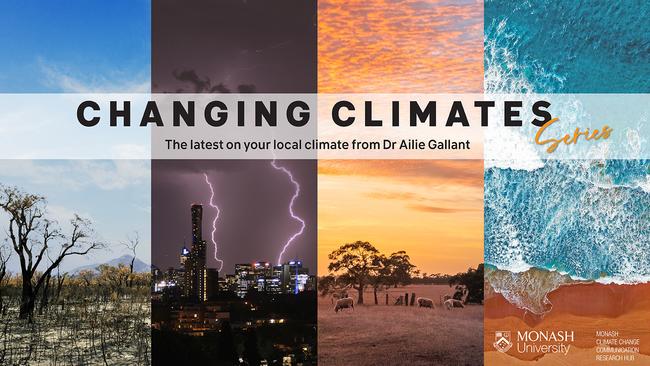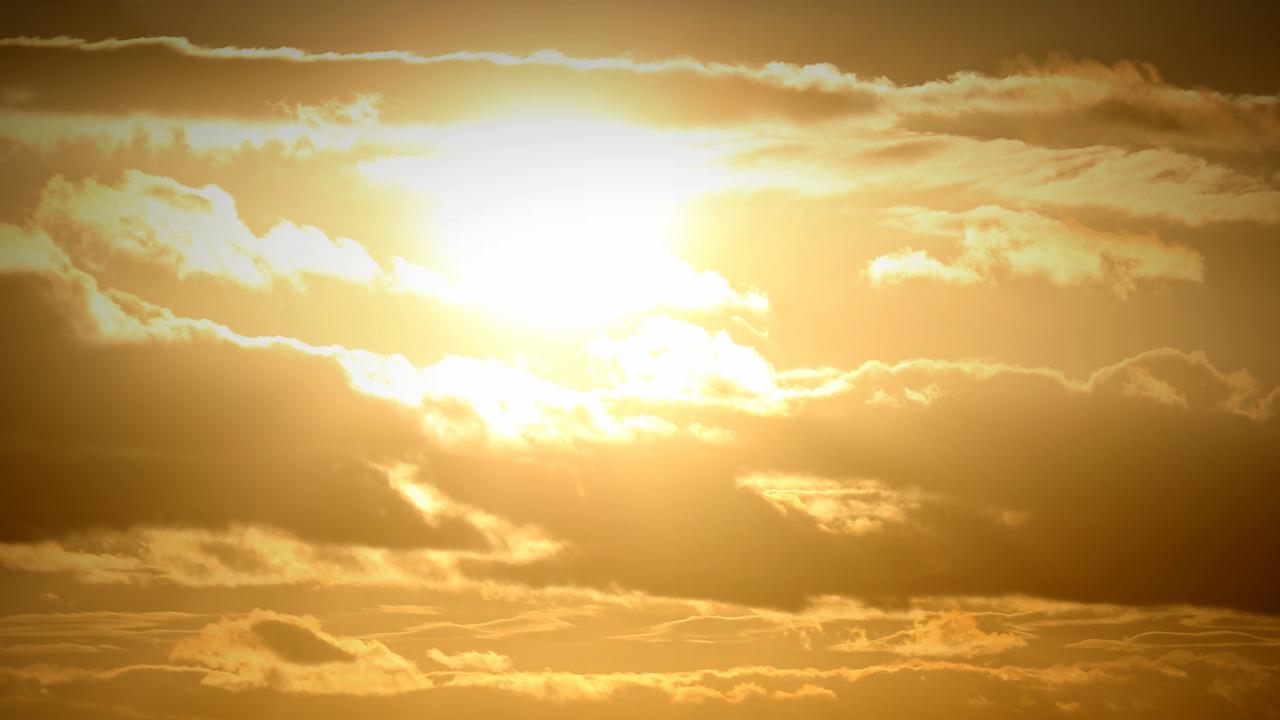From heatwaves to heartaches: Australia's eco-anxiety crisis
All Australians, particularly those in vulnerable communities, face growing rates of eco-anxiety – but there are steps we can take to manage this, explains Changing Climates series author Dr Ailie Gallant.

Hyperlocal
Don't miss out on the headlines from Hyperlocal. Followed categories will be added to My News.
Australians are no strangers to the impact of extreme weather events while living in a country with some of the harshest environments on the planet.
However, human-induced climate change is causing the frequency and intensity of these events to increase.
For example, in 2019-20, above average temperatures, and a long drought that caused low moisture levels in bushfire fuels, came together to spark the Black Summer fires that devastated eastern Australia.
In fact, we only need to look at our own backyard to realise how the climate has changed over time.
The average July day in the inner city is now 0.9C warmer compared to the early 1970s.
While we often see the physical impacts of extreme events like droughts, heatwaves and bushfires on the news, the mental toll of our changing climate often flies under the radar.

Eco-anxiety on the rise
Eco-anxiety refers to the chronic fear of environmental doom.
This sense of anxiety largely stems from uncertainty about the future of our planet, and the impact of human-induced climate change.
According to a 2021 survey conducted by the Australia Institute, 75 per cent of Aussies reported experiencing feelings of concern about climate change.
Eco-anxiety can be sparked in various ways, but is often linked to personal experiences with environmental disasters, exposure to news coverage of environmental issues, and general feelings of powerlessness.
While personal experience of emergencies can be extremely stressful, they typically take place over a relatively short period of time.
Climate change, however, stands on its own by posing an ongoing threat, without a clear end in sight.
Former Tasmanian GP Dr Clare Smith said "this leads to a constant flow of terrible information coming into your inbox, day after day, reinforcing pressures and anxieties."
Eco-anxiety affects our most vulnerable
Eco-anxiety has the potential to affect all of us given our reliance on a healthy, productive planet.
However, according to Clinical PhD Student from the Turner Institute Sashka Samarawickrama, the way it influences us can vary dramatically depending on our "life circumstances and ability to cope".
Because of this, people who are socially, economically, politically, culturally, institutionally or otherwise marginalised are particularly exposed to its effects.
These vulnerable communities typically experience the devastating impacts of climate change first-hand as they often live in areas prone to extreme weather events and have fewer resources at their disposal.
This can lead to heightened levels of distress.
Younger generations are particularly vulnerable as they often feel burdened with the weight of inheriting an uncertain world.
The latest IPCC report shows how the choices we are making now will have a significant impact on how much current and future generations will experience a hotter world.
In fact, a recent study shows children born in 2020 will experience a two to seven-fold increase in extreme climate events compared to their grandparents, born in 1960.
Frontline workers like firefighters, wildlife carers and farmers are at higher risk of eco-anxiety, depression, and other mental health challenges relating to climate change.
Researcher from Monash University Dr Susie Ho said:

Addressing eco-anxiety
Thankfully, we can take proactive steps to manage our emotional wellbeing while still contributing to positive change.
It is important to keep in mind that solving climate change is a long journey, and focussing on our mental health can help us tackle it effectively.
"It's all about self-care," said Dr Smith.
"If you've been lucky enough to go on an aeroplane, it's the concept of putting on your own oxygen mask before you try and help anybody else."
Although eco-anxiety is an emerging issue, it is likely to become even more prevalent as the climate crisis worsens.
"That's why it's so important to have conversations about eco anxiety and ...to talk about the way (we) feel," explained Turner Institute PhD student Miss Samarawickrama.
Studies have found that simply talking about our problems and sharing our emotions with others can be profoundly healing.
This can also help break down the stigma around eco-anxiety, and create space for people to engage in the conversation openly and realise they are not alone.
Monash University student and young environmentalist Isabella Zhu-Maguire believed "we have to be realistic about the fact that nothing will be done as an individual person."
"That realisation has been so good for me".
Stepping away from the constant stream of distressing news and engaging in fun and rejuvenating activities can help maintain mental stability too.
Dr Clare Smith explained "We can't expect to go for the long run, if we're carrying a big load every step of the way".

By setting achievable goals, fostering caring and trusting relationships, practising self-care, avoiding isolation, and believing even the greatest problems can be solved, we can all position ourselves to effectively tackle climate change.
Together, we can build a world where eco-anxiety is replaced by a deep sense of empowerment and optimism for a sustainable tomorrow.
Want more information on how your climate is changing? Check out the last article in this series.
Dr Ailie Gallant is a climate scientist and senior lecturer at Monash University.
This column is part of a collaboration between Monash University and News Corp to deliver hyperlocal weather and climate information.


